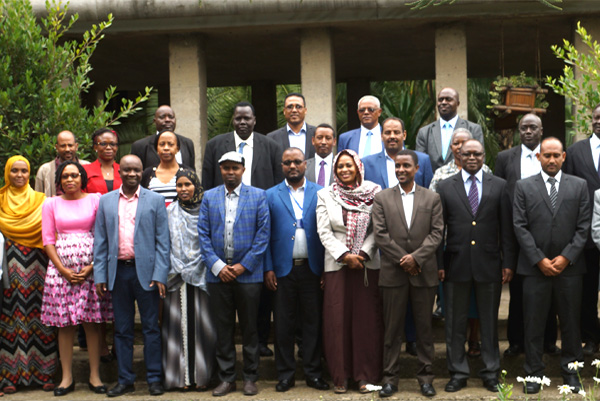01-08-2017, Addis Ababa (Ethiopia): The Intergovernmental Authority on Development (IGAD), in partnership with the World Health Organisation (WHO), inaugurated the 3rd Meeting of Heads of National Medicine Regulatory Authorities (NMRAs) at a session presided over by Dr. Eshetu Kebede from the Ministry of Health of Ethiopia, and in the presence of the Reproductive Maternal Child Health Coordinator-IGAD, Dr. Fatuma Adan, Dr Paul Mainuka of the World Health Organization (WHO)-Addis Ababa, and Dr Apollo Muhairwe of the World Bank-Uganda.
IGAD has embarked on developing a proposal aimed at improving access and availability of medicines through harmonization of regulatory systems, guidelines and processes among IGAD-NMRA’s in line with the Addis Ababa Call for Action of August 2015 and Khartoum Declaration of April 2016. Regulatory harmonization will achieve good control of pharmaceutical standards without impeding or obstructing the movement of pharmaceutical products within the region.
This 3rd Meeting of Heads of National Medicine Regulatory Authorities thus focuses on approving the IGAD Medicine Regulatory Harmonization (IGAD-MRH) Programme Proposal (to be submitted to potential development partners on August 3rd in Addis Ababa). It is also an opportunity for participants to validate and endorse the establishment of governance structure for the IGAD MRH Programme as well as the Terms of Reference of the IGAD MRH Expert Committees.
Dr. Esheteu Kebede, speaking for the Minister of Health of Ethiopia, noted that “the global illicit trade of fraudulent, sub-standard and otherwise dangerous medicines” was getting “a major regional challenge with its associated health problems” for the populations. He thus called, once again, on “international partners for perceived assistance on this delicate regional initiative”.
Dr Fatuma Adan, speaking on behalf of the Acting Director of Health & Social Development for IGAD Executive Secretary, highlighted, exception made of Kenya and Uganda which benefit from an East African Community MRH Project, the deficiency of regional support to IGAD Member States NMRAs due to lack of funds. She nevertheless pointed out to the fact that IGAD, with support from WHO and the World Bank, IGAD has come a long with the MRH Project Proposal being reviewed and adopted during these two-day long meeting.
Dr Mainuka declared that he was confident that the regional project proposal being discussed will “address the regulatory challenges, the proposed strategies and will further provide the right solutions”.
Dr Apollo lauded IGAD for the “development of the IGAD MRH Dashboard which enables sharing of publically available information on medicines in the region”. “NMRAs can use the platform to conduct a number of activities including information on status of registration of medicinal products”, he said.
The African Medicines Regulatory Harmonization Initiative has achieved a considerable harmonisation in several Regional Economic Communities on the African continent. However, there has been no harmonization initiative in the IGAD region so far. Currently, there is no funding to support medicine regulatory harmonization initiative in IGAD region; thus, the need to establish a structure and support this collaborative initiative in IGAD region. It is in this respect that IGAD called on a Donors Sensatisation Meeting to be held on August 3rd in Addis Ababa.
###

